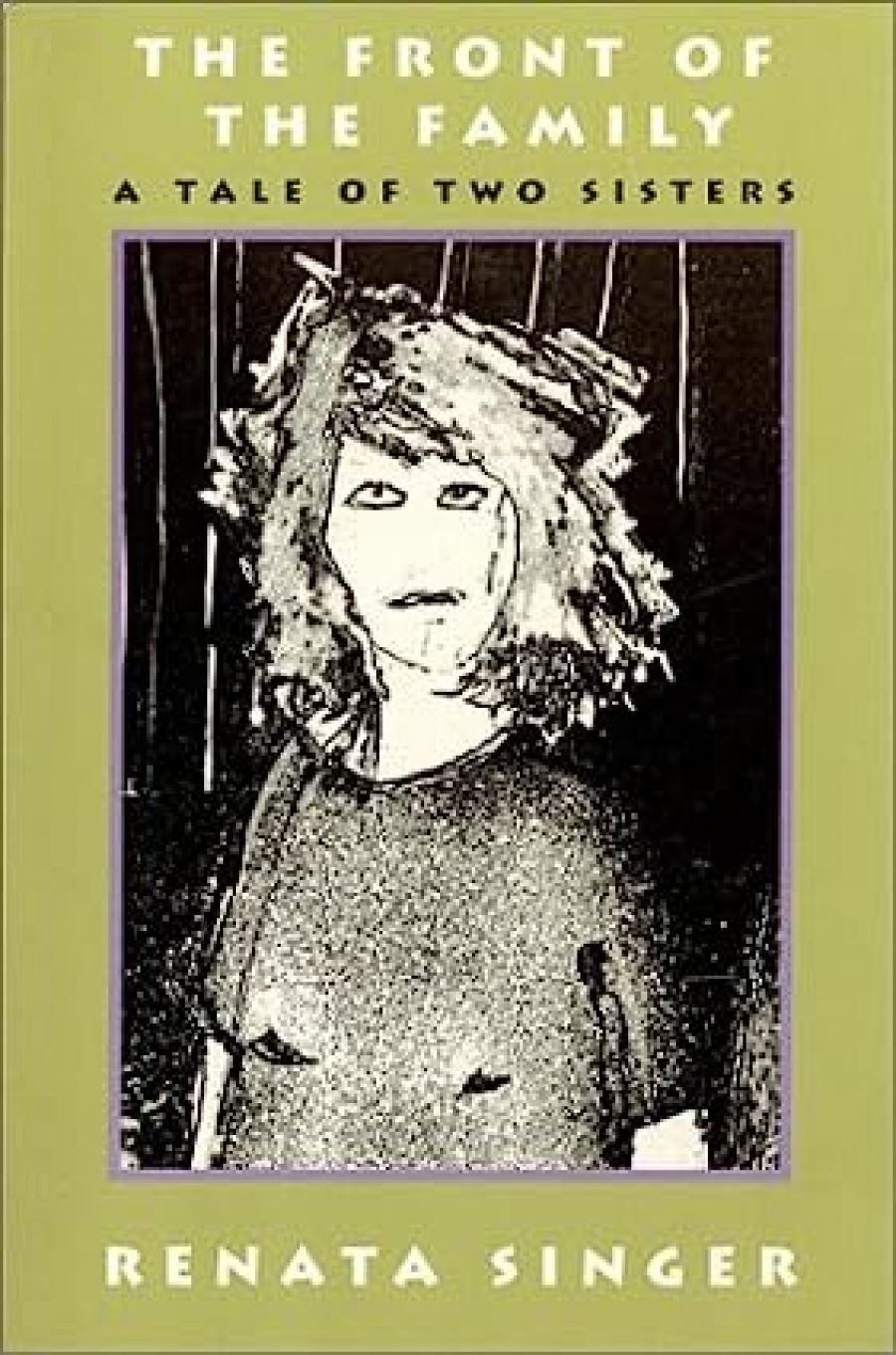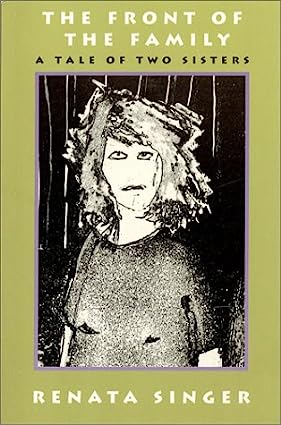
- Free Article: No
- Contents Category: Fiction
- Review Article: Yes
- Article Title: A Tension of Opposites
- Online Only: No
- Custom Highlight Text:
The main character in Renata Singer’s novel, The Front of the Family, says ‘What’s past is passed.’ We only have a brief encounter with her before she slumps over dead in her old terry-toweling dressing gown in front of the television. But, in the tradition of Faulkner’s As I Lay Dying, the narrative continues to revolve around the present absence of Zosha Feldman, her past, her life and her complicated relationship with her two daughters, Felunia and Miriam. Indeed, the central question of the novel is whether the past is ever past. As another character remarks, ‘some things you can’t talk about. You can only talk about what you can think about. Better not to think about some things.’
- Book 1 Title: The Front of the Family
- Book 1 Subtitle: A Tale of Two Sisters
- Book 1 Biblio: Bruce Sims Books, $22 pb, 312 pp
- Book 1 Cover Small (400 x 600):

- Book 1 Cover (800 x 1200):

Miriam may give some consideration to the wisdom of this, although it does not stop her from searching for the identity of her real father and the clues to her mother’s life in war-tom Poland: ‘Layers I knew nothing about, secrets, evasions, lies.’ Felunia, on the other hand, while verbally acquiescing to the notion, is unable to control her own relentless dissection of her past or the fraught relationship with her dead mother: ‘“I told you that old goy would be no good”. Without her, I’ve got the cryptic crossword of my life to make my meaning from. And the money.’
This contrasting of the sisters provides a tension of opposites, a paradoxical structure to the novel: one sister moving out of the depths of the deceit and lies of her unfaithful husband into the light of understanding and self-acceptance; the other tarrying in that underworld in spite of what appears to be her perfect family. Both sisters finally cleanse themselves of old baggage and self-deceptions and discover new life and satisfactions. Singer gestures toward a resolution of the question as to how much the past informs the present with the symbolic acts at the end of the novel: Miriam’s house-selling and the arguably overworked motif of Felunia painting her mother’s portrait. But, as in life, there can never be a definitive answer. Even Felunia is forced to consider that without memory and the past:
A whole generation gone who knew what to do on these occasions, Rach as bought a book on Jewish Festival so we can learn what to do. Will Joe and Mimi be here for Pesach? Feels like there’s no family left for Rachel and Josh.
This is the first Bruce Sims book I’ve seen. In spite of my sympathy for small publishers, I don’t find it an especially attractive production. To my eye at least, the text itself is so lightly inked and dense as to be reader-unfriendly, and the monochromatic cover is a bit flat. But I suspect this is the stage in the development of workable, cost-efficient publications. I only mention it because, if there is anything to the fairly widely held belief that people judge books by their coves, that shouldn’t be the case here. These superficialities belie the lively and readable narrative: Singer has deftly handled the myriad details and complications of the story through a mix of stream of consciousness, telephone dialogues, and even emails, though occasionally it bogs down under the weight of this accumulation. Her use of dual narrators allows her to suggest the unreliableness of memory and to ionize the otherwise intense and depressing search for ‘truth’ by the two sisters. In Fact, there are some very funny moments in the book, adroitly juxtaposed to the terrible events of the Holocaust. Her portraits and settings of aging and middle-class Polish Jews in Melbourne, New York, Surfers and Miami are quite memorable, if not always believable. (Do they all look and talk as if in a television sitcom?)
Fredja chats to me about the ‘vonderfool’ decorator she employed and the tsures she had finding the right white sink, such a problem. ‘Is it hard to keep clean?’ I ask, imagining plump Fredja in her white capri pants busy all day with Windex, and MrClean, putzing and spritzing, and learn that the pristineness is maintained by Domenica, their Cuban maid, who comes in for two hours a day.
Nevertheless, the main characters are plausible and I found myself caring about them. After all, when you catch any family behind closed doors, you’ll find it has its share of craziness and eccentrics. All in all, The Front of the Family is entertaining. Perhaps the best compliment one can give a work of fiction is that it is a good read.
This is Singer’s first novel. In the end, light as it can sometimes be, she has not shied away from some of the gruesome and poignant realities of life. More importantly, she had allowed herself to portray the incredible complexity of human relations with all their joys and attendant cruelties and imperfections.


Comments powered by CComment